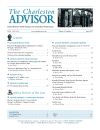
Early Modern England
Early Modern England is a database for those researching English history from 1500-1700, which is provided by Adam Matthew Digital. This database’s primary focus is on the lives and perspectives of the masses, and not so much on those of the nobility and monarchs. Here, the user
can access a number of materials from this time period, including commonly used books, copybooks, correspondence, family papers, diaries, images (including those of objects of various kinds), tax records, and other materials. These are broken into a number of collections, either associated
with a particular author(s) or library. Materials in this database are drawn from seven different libraries and archives: The British Library, Canterbury Cathedral Archives, Lambeth Palace Library, London Metropolitan Archives, Newberry Library, Shakespeare Birthplace Trust, and the National
Archive, UK. Documents in this resource are also grouped by type, subject, and region. Numerous chronologies are also contained here, on poverty; trade, commerce and economics; the monarchy; arts, literature and culture; war; religion; politics and foreign affairs; science, technology and
medicine; and exploration and colonization.
The readability of the documents and images available here can vary. For the most part they are of excellent quality, but some documents are handwritten, which can make them difficult to decipher. Thankfully, this database includes Handwritten Text Recognition (HTR), which makes many such documents legible. It’s not difficult to navigate, reduce and enlarge documents here, but the range of movement and degree of magnification is limited. Documents can be browsed and/or searched for in a variety of ways, using either a single search bar or advanced search, or by using one of a number of browsing options. These searching and browsing options are easily usable and understandable and often produce useful results, but the options for searching are just as likely to present the user with results that are of marginal relevance. Pricing for this database is determined by the size of the potential user group, a measurement which may be difficult to make in some circumstances (contact the vendor for a specific price quote). The licensing agreement for this resource is the same as for all Adam Matthew Digital databases, and its composition is generally average (though it is quite long, at 15 pages). The quality and quantity of content is excellent and will certainly be of use to those researching England in the above-mentioned time period, but will probably be of little use to institutions that don’t have a consistent, and even extensive, need for these kinds of materials.
The readability of the documents and images available here can vary. For the most part they are of excellent quality, but some documents are handwritten, which can make them difficult to decipher. Thankfully, this database includes Handwritten Text Recognition (HTR), which makes many such documents legible. It’s not difficult to navigate, reduce and enlarge documents here, but the range of movement and degree of magnification is limited. Documents can be browsed and/or searched for in a variety of ways, using either a single search bar or advanced search, or by using one of a number of browsing options. These searching and browsing options are easily usable and understandable and often produce useful results, but the options for searching are just as likely to present the user with results that are of marginal relevance. Pricing for this database is determined by the size of the potential user group, a measurement which may be difficult to make in some circumstances (contact the vendor for a specific price quote). The licensing agreement for this resource is the same as for all Adam Matthew Digital databases, and its composition is generally average (though it is quite long, at 15 pages). The quality and quantity of content is excellent and will certainly be of use to those researching England in the above-mentioned time period, but will probably be of little use to institutions that don’t have a consistent, and even extensive, need for these kinds of materials.
Publication date: 01 April 2021
- Access Key
- Free content
- Partial Free content
- New content
- Open access content
- Partial Open access content
- Subscribed content
- Partial Subscribed content
- Free trial content
